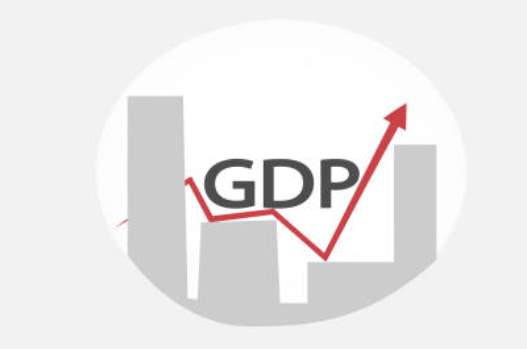How GDP Increase/Decrease Affects Everyone

Everyone must’ve definitely seen, heard or read news stories about Gross Domestic Product or GDP. They usually tell you that GDP went up or down by X%. But without further explanation of how it impacts your life, you get bored and move on to the next news item.
However, GDP affects your daily life. Since this indicator measures the growth of the economy of the country where you live, that is, whether there is more or less production of goods and services.
How does GDP growth benefit you?
If the GDP increases, it means that there is more money available to produce more goods and services. This is reflected, for example, in increased home construction, growth in cell phone or computer sales, or increased food purchases.
As that production of goods and services increases, so does employment, the chances of starting a successful business of your own, and wages increase, directly benefiting your economy.
How does the fall in GDP affect you?
On the contrary, if a country’s GDP decreases, fewer goods are produced, there is less demand for services and, therefore, productive activity decreases, generating a recession.
When there is a recession, investments are reduced, jobs are reduced, salaries go down and all this affects your lifestyle, forcing you to reduce your expenses or generating stress due to the uncertainty of knowing if you will have enough money to meet your needs for the following month.
Probably, as you go through these lines, there are concepts related to GDP that you do not understand. Don’t worry, we will explain those details later.
If GDP Goes Up
- Jobs increase
- Consumption of goods and services increases
- Investments increase
- Inflation lower
- Wages increase
If GDP Goes Down
- Job loss
- Lower consumption of goods and services
- Investments decrease or stop
- Lower wages
- Higher inflation
What is GDP?
It stands for Gross Domestic Product or Gross Domestic Product. It is the sum of the value of all goods and services produced in the country during a year.
What are GOODS?
Economic goods are all tangible objects and merchandise manufactured by a country and purchased by a consumer. Generally, a good has a value and is made available on the market under a price.
Examples of goods considered in GDP
Almost all the things you use in your daily life are goods. There are thousands of examples, here are just a few:
- Automobiles
- Televisions
- Cellular phones
- Fruits and vegetables
- Furniture
- Clothing
- Household appliances
- Canned or packaged foods
What are SERVICES?
They are all activities performed by companies and/or individuals with the objective of satisfying a specific need. Commonly, a service has a value, which is paid for by the person who needs it. People who offer a service usually receive some kind of money in return in the form of biweekly or monthly salary.
Examples of Services Considered in GDP
There are thousands of activities that are recorded in GDP. Here are few of them:
- Medical consultations
- Banking activities
- Construction
- Restaurants and other food businesses
- Transportation of goods
What does GDP measure?
Basically, the Gross Domestic Product includes all the production of end-use goods and the supply of services within a country in the last year. The activity of foreign companies that have a headquarters, factory or subsidiary in other country is also part of the GDP.
What does GDP NOT measure?
There are specific items that this indicator does not contemplate. Some of these are:
- Sales of second-hand goods and antiques, in short, the transaction of goods more than one year old. GDP only measures the production of goods produced in the last year.
- Expats living in another country. For example, if an Indian owns a restaurant in the United States, his activity is considered in the GDP of USA.
- The production of goods for self-consumption. If you produce vegetables in your home garden to eat them, the GDP does not consider them unless you put them on sale.
- The production of objects that are part of an end-use good. For example, computer chips are not measurable in GDP, since GDP only considers finished products, in this case computers.
Who measures GDP?
Every country has its own economic agency that measures GDP. For a better understanding and measurement of the national economy, these agencies typically divides economic activities (including goods and services) into three main groups: primary, secondary and tertiary.
What are primary activities?
These are the economic activities that depend on the exploitation of natural resources. Some examples are:
- Fishing and aquaculture
- Agriculture
- Livestock
- Forestry
What are secondary activities?
These are the economic activities that transform primary goods or raw materials into more elaborated products. They are usually called industries.
Some of the most important industries are:
- Automotive
- Petroleum
- Construction
- Food
- Electronics
- Manufacturing
What are tertiary activities?
They include both the economic activities that distribute primary and secondary goods, as well as the services offered by individuals and companies to satisfy a need.
Some examples are:
- Restaurants
- Courier and package delivery companies
- Telecommunications
- Financial services
- Hospitals
- Private schools
- Supermarkets
How is GDP estimated?
By a percentage comparison with respect to the previous year’s quarter and the most recent previous quarter. A bit tricky? Here’s how.
E.g. In the first quarter of 2022, if GDP of any country grows 0.9% with respect to the previous quarter, that is, the fourth quarter of 2021. This means that the country’s economic activity increased that percentage from January to March of this year.
E.g. If GDP grew 1.6% over the same quarter last year. That means that national economic activity from January to March 2022 is 1.6% higher than it was in the January to March 2021 period.
Also check: Financial impact of climate change
Why is GDP important?
GDP measures how much a country’s economy is growing. If GDP increases little or decreases, money flows decrease and jobs are lost. If GDP grows continuously, i.e., for several quarters, it is an indicator that a country has a healthy and productive economy.
How did COVID-19 affect GDP?
The recent COVID-19 pandemic collapsed economic activity in all countries, resulting in higher unemployment, business closures, lower wages, higher prices, higher debt levels due to the inability of many people to make their payments.
In short, the coronavirus generated a global crisis in economic activity and a reduction in the GDP of almost every nation on the planet.

Hi, I am Nikesh Mehta, owner and writer of this site. I’m an analytics professional and also love writing on finance and related industry. I’ve done online course in Financial Markets and Investment Strategy from Indian School of Business. I can be reached at nikeshmehta@allonmoney.com.



